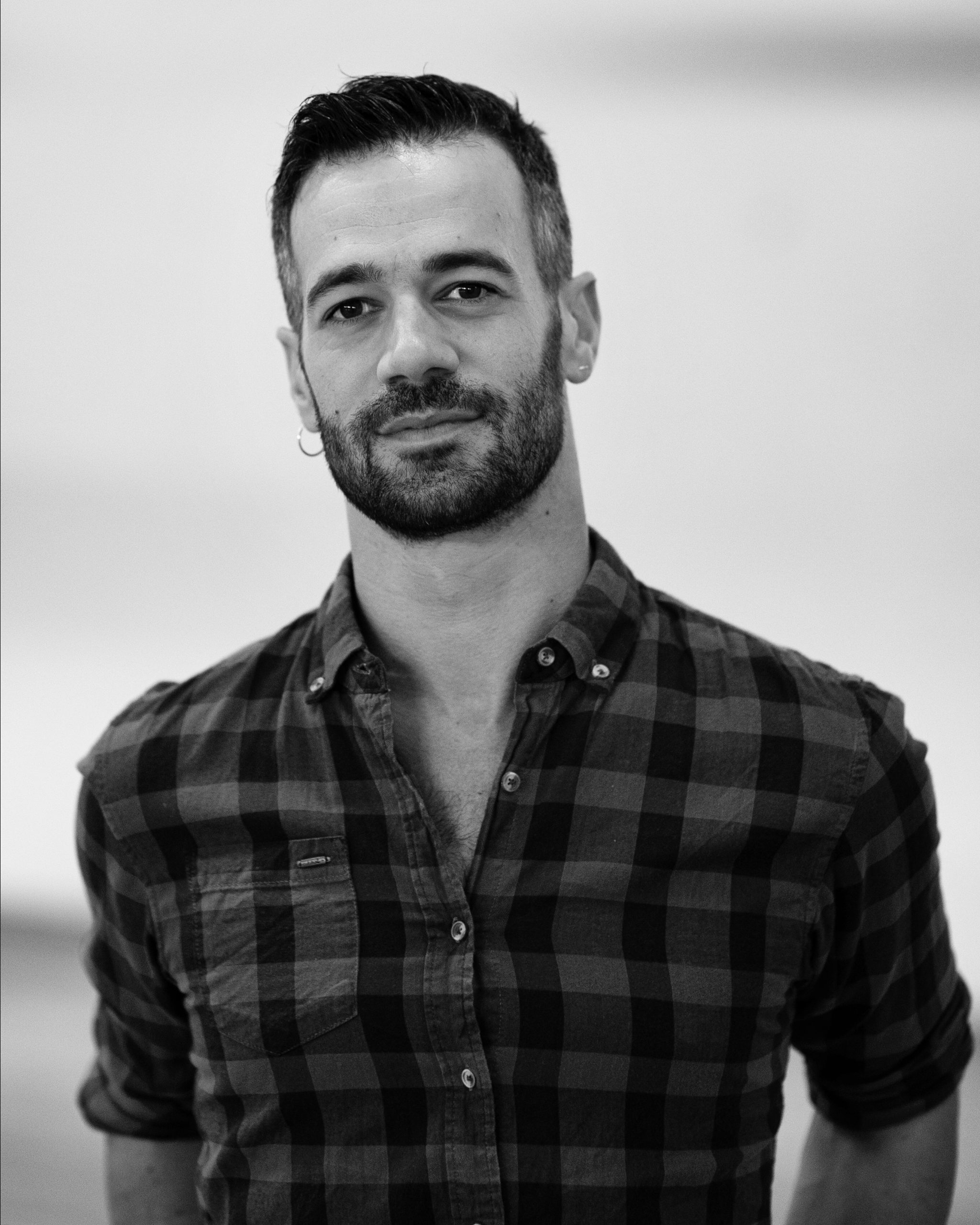
Dancer, choreographer and composer
Born in Arenys de Mar and trained at the Institut del Teatre Barcelona, Miquel G. Font danced at Béjart Ballet Lausanne (Switzerland), Houston Ballet / Dominic Walsh Dance Theater (United States), Lanònima Imperial (Barcelona), Tanzcompagnie Oldenburg (Germany), among others, working with choreographers such as Maurice Béjart, Jiri Killián, Ann van den Broek, Sharon Eyal, Guy Weissman or Jan Push.
Since 2011 she has directed productions in Germany, Austria, Switzerland and France, the Netherlands and co-produced international festivals such as Jerusalem Dance Week (IL), Intenationale Tanz-Theater Hannover Festival (de), Greek - Barcelona Festival (cat), Kultur und Politik Festival W3 Hamburg (de), Open Look Festival St. Petersburg (ru), among others. He is a resident choreographer or guest of other organisations such as Miami City Ballet (USA), Jeune Ballet d'Aquitaine (FR), Scapino Ballet Rotterdam (NL), Royal Conservatory Antewerpen (BE), among others. Here in Catalonia he has also been a choreographer/pedagogue at the Institut del Teatre Barcelona and with PAR en Dansa (ES) as one of the co-founders in 2020. During the 2020/21 and 2021/22 seasons he also served as artistic director of the Ballet Contemporani de Catalunya.
As a composer he has created music for multiple pieces choreographed for himself and other choreographers or directors such as Alessandra Corti, Jori Kerremans, Albert Garrell, Marc Chornet and entities such as Staatstheater Mainz, Scapino Ballet Rotterdam or Theater Basel(CH). He has also composed soundtracks for films such as the El Reto de Eva trilogy or RAR - El Torró solidari Per RAC1 and Torrons Vicens.
Habemus Corpus' origins
In 2006, at his beginnings as a professional dancer and due to a long-term injury, he spent a year in the ecumenical community of Taizé where he began to write projects based on actual events that he witnessed among thousands of people. Thus Taizé became the origin of Habemus Corpus ("ten bodies" in Latin) which was not founded until 2010.
- Speak only when you have something to say – Fr. Stephen, Taizé. -
That is the basis of all his work. With this, G. Font developed all his concepts from real facts, always talking about specific topics. He also ensures that his artists have a specific reason to interpret, move, or perform any action within a work. With several years invested in different fields, he also composed the music of his own pieces, for other directors or for films. To identify and have empathy with a particular subject is, for him, essential to creating.
"Habemus Corpus, a whole philosophy of empathic work."
Jordi Sora - Escena de la memoria - September 2016
In all his accumulated experience, from the beginning of his career, G. Font wrote everything he saw, learned, heard from the many choreographers and directors for whom he worked... And I judged it individually by putting it on, either a list of positive factors or a list of factors to improve or to ignore. He had always focused these reflections on the future will to direct productions or open up his own entity.
Once he began to create, the first thing he did was apply the lessons he had given himself, so he could instantly mirror himself with the dancers. He also helped the fact that he was also one of the dancers in his early productions.
After finishing his career as a dancer his thesis as a director had finished with a team of artists who had absorbed from him the same thing he had absorbed from him, but this time choosing what to do with the two lists he had created years ago.
